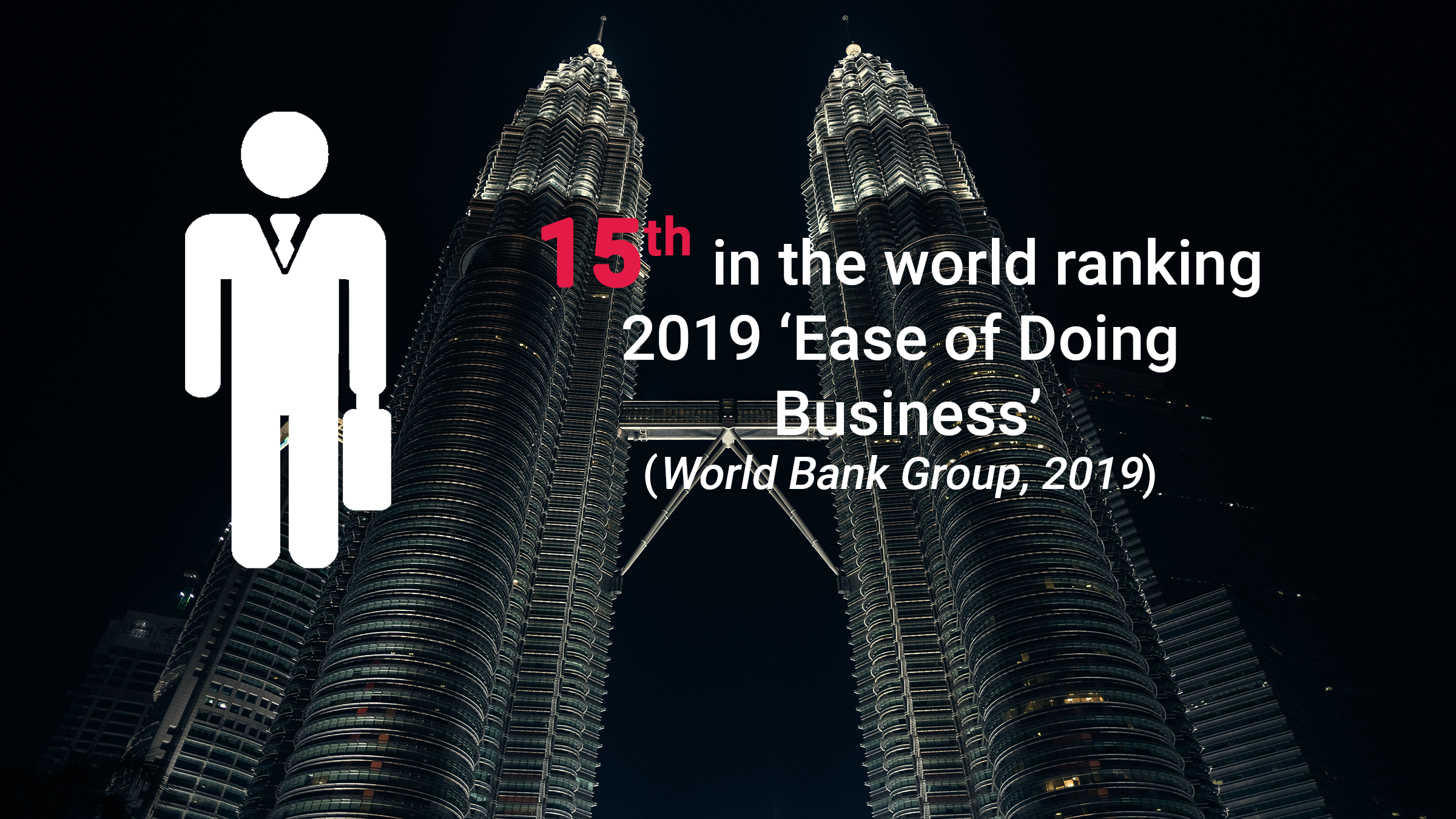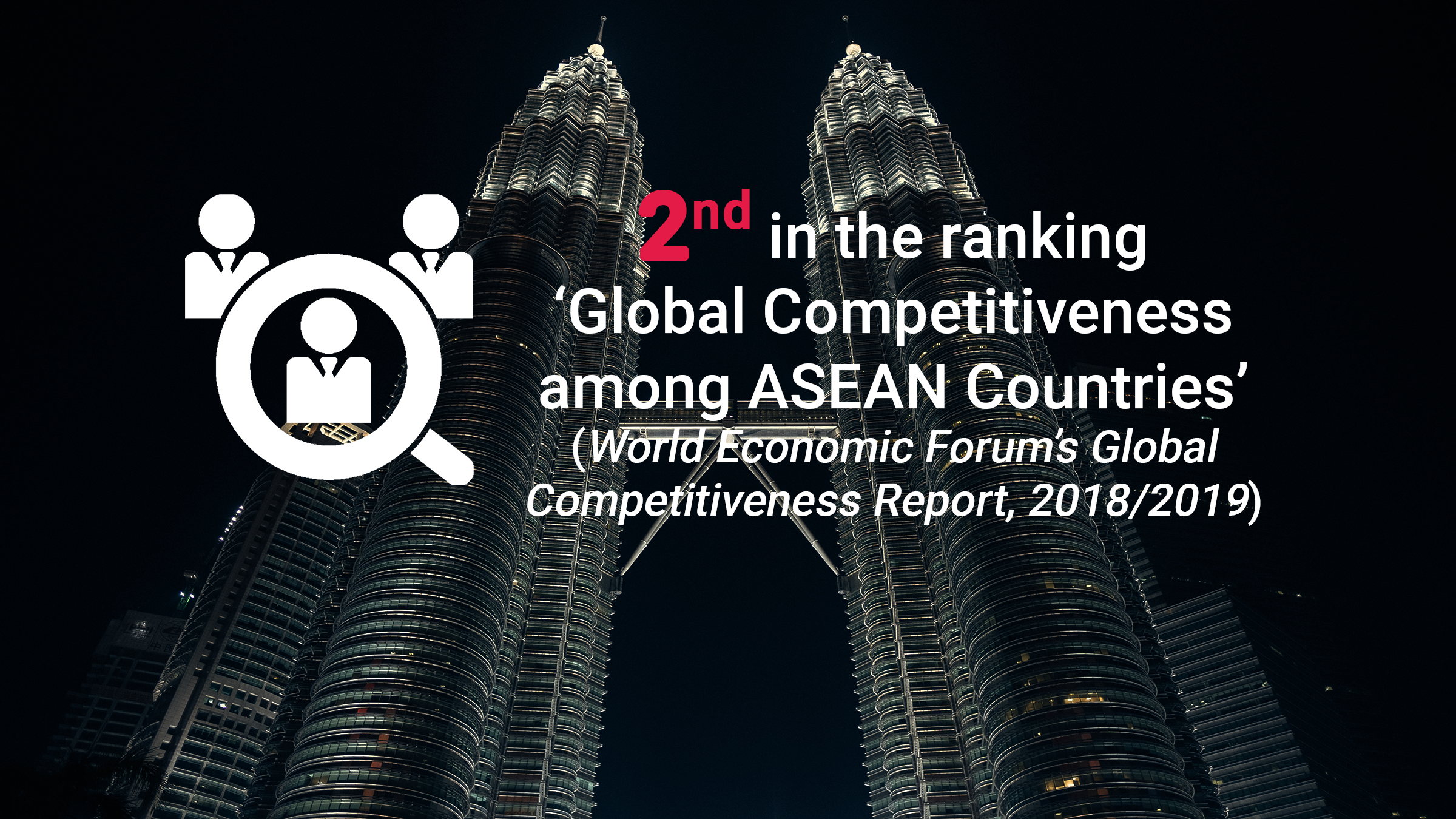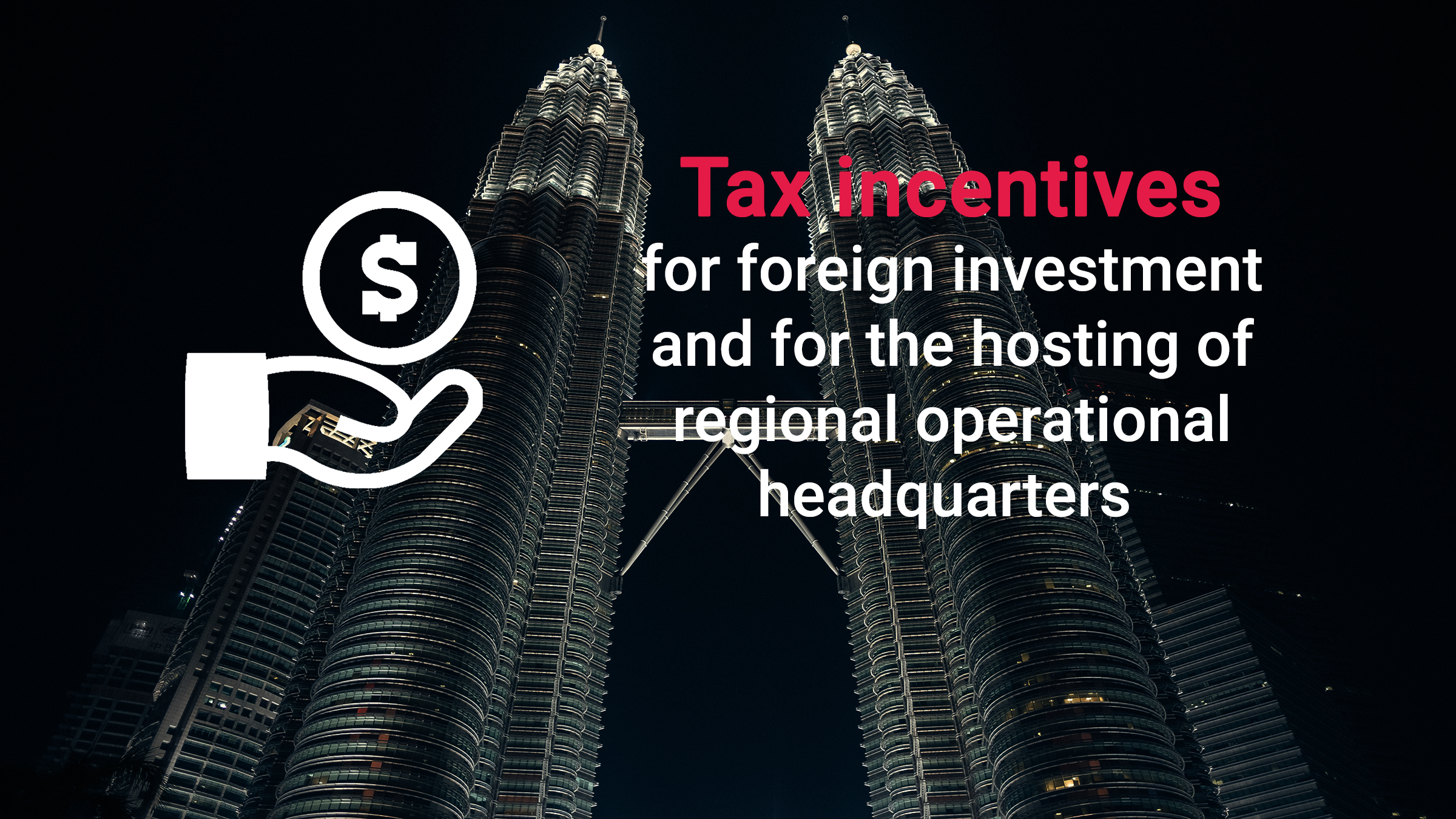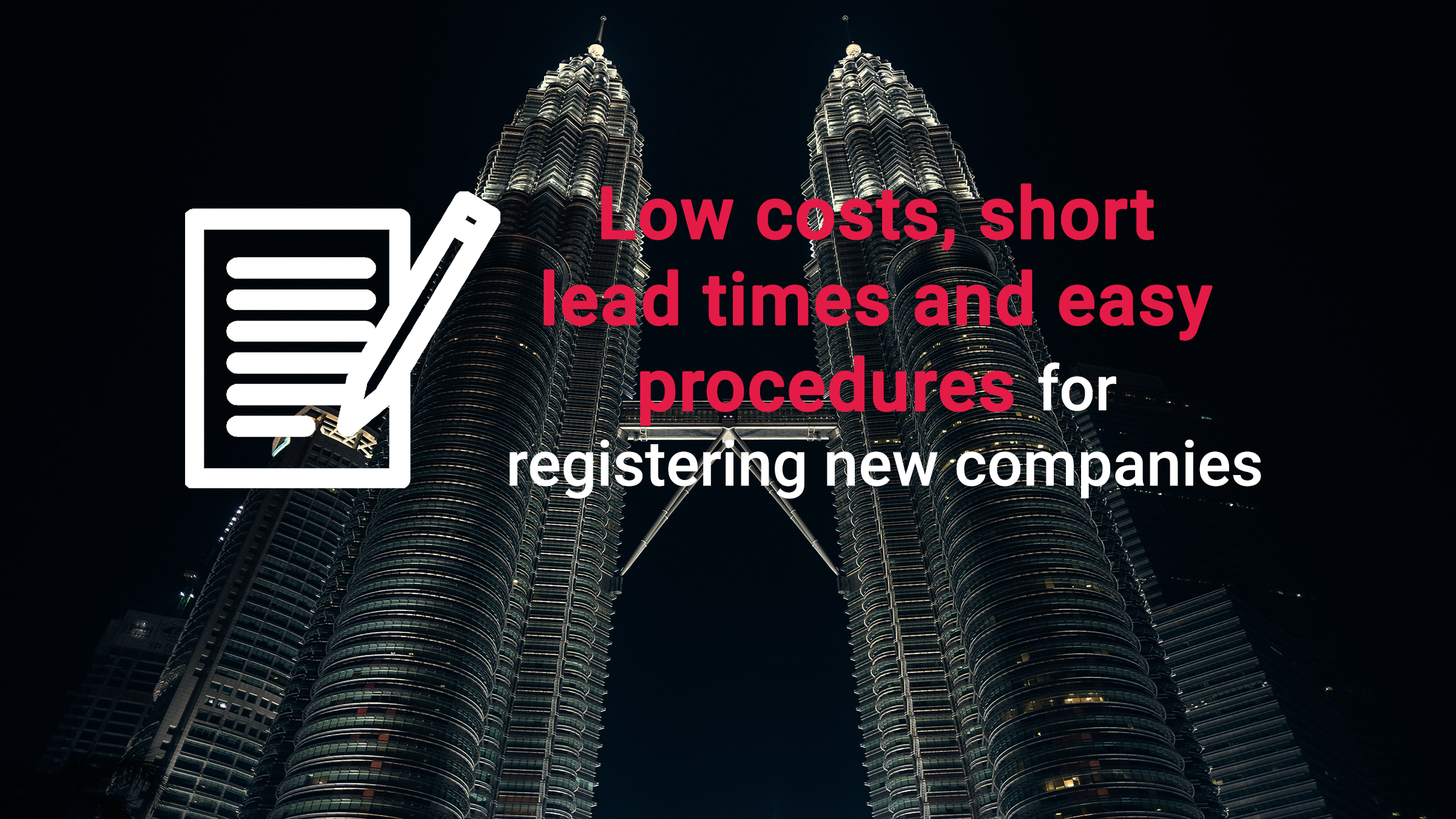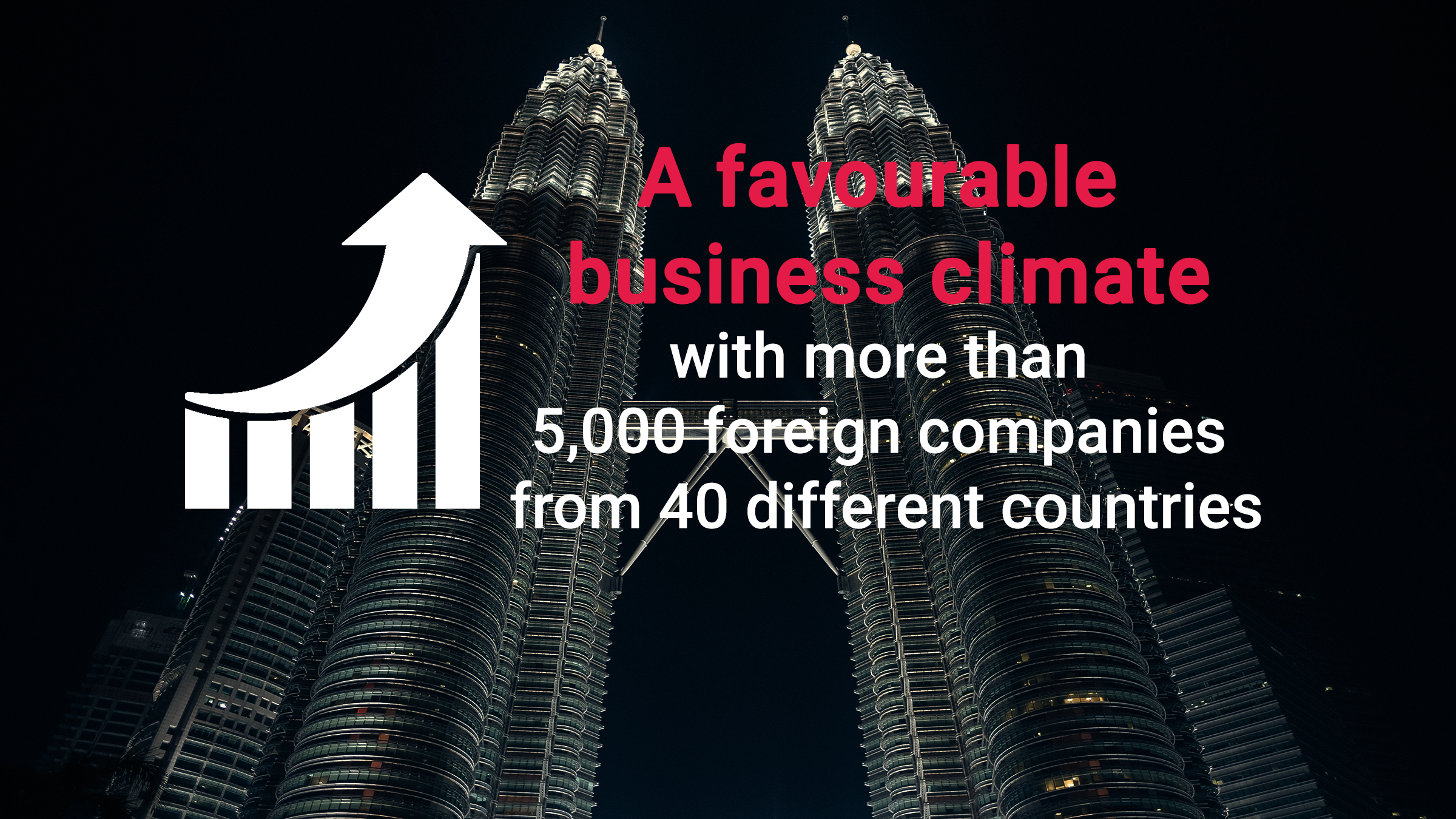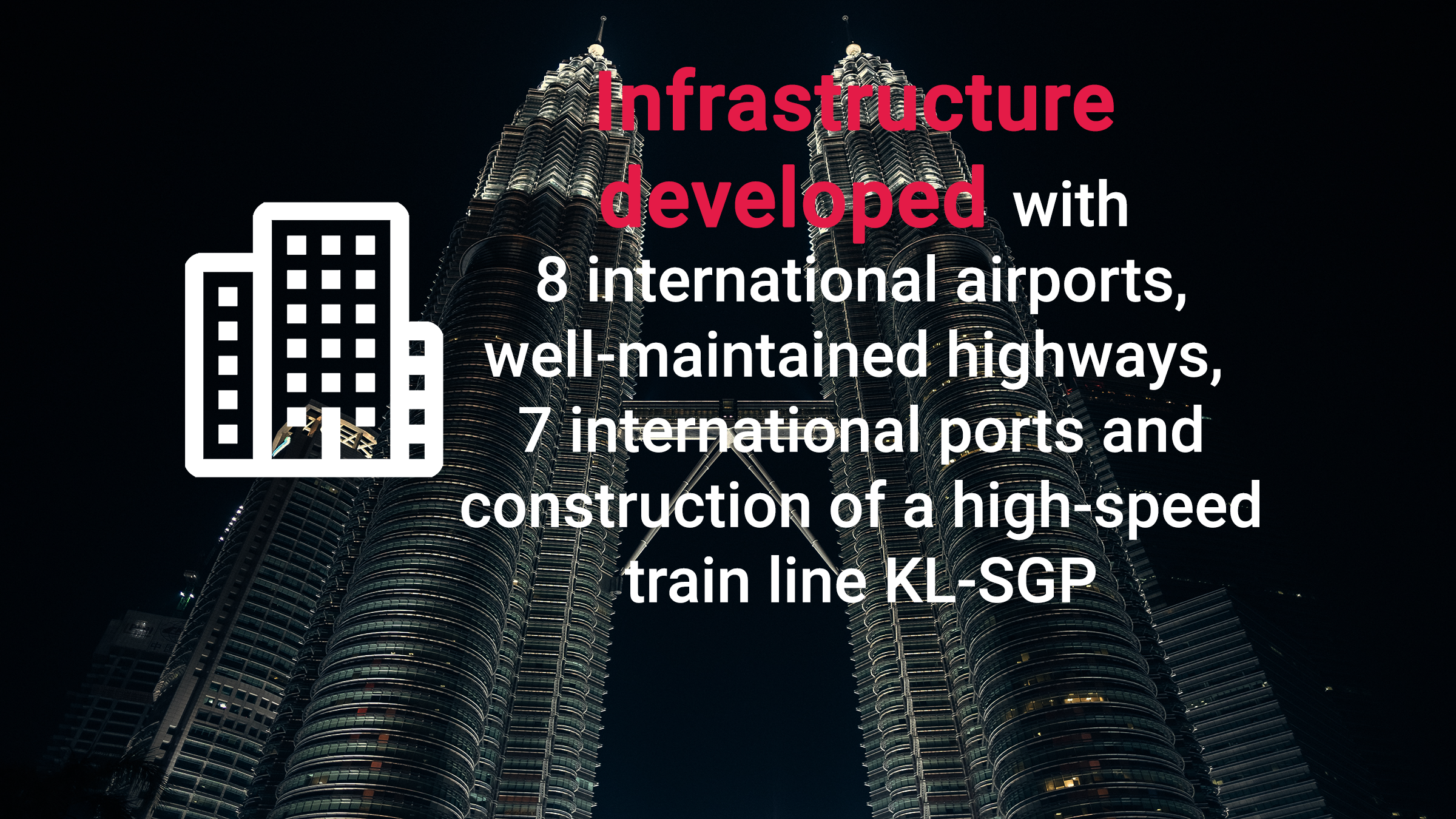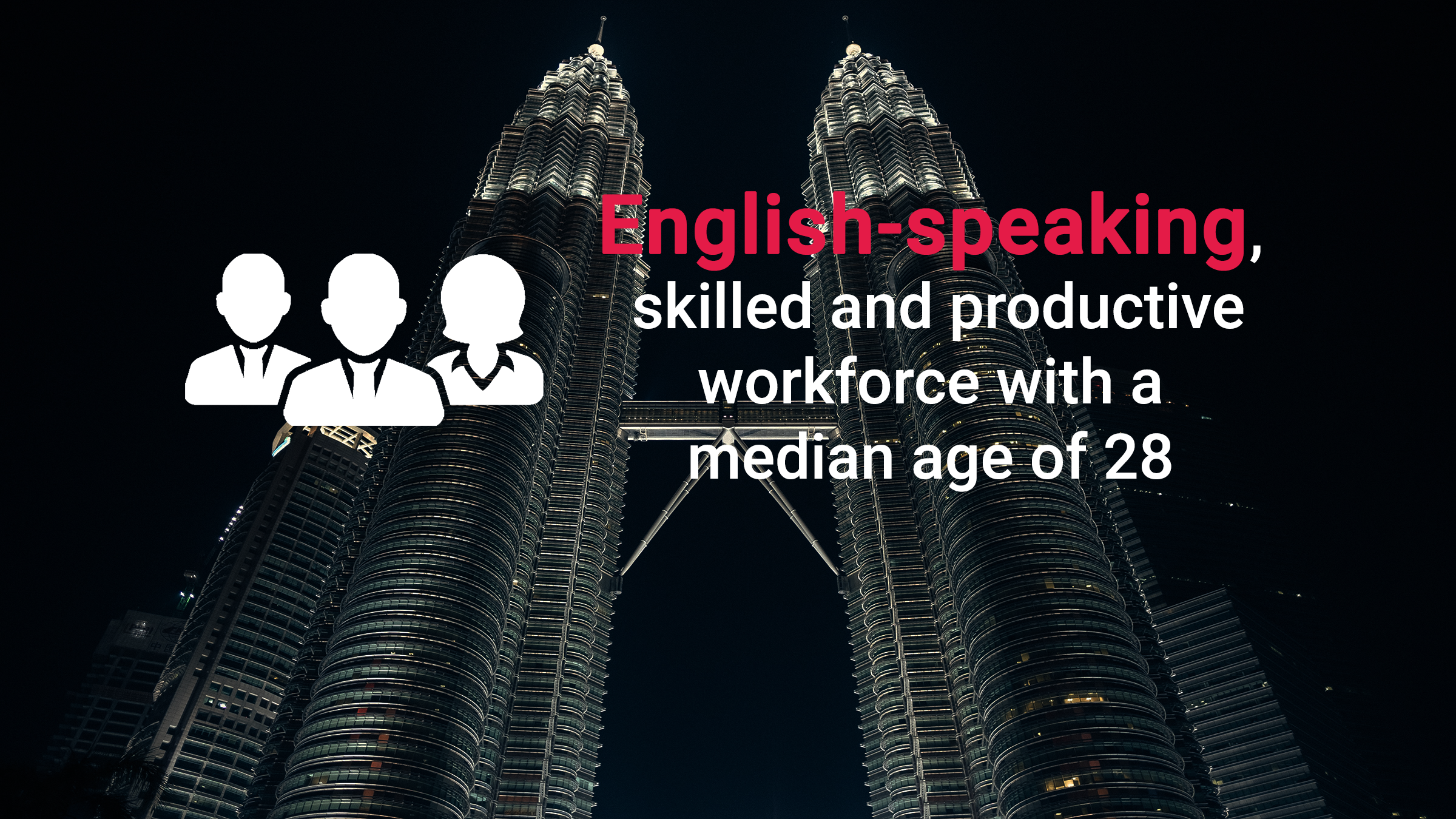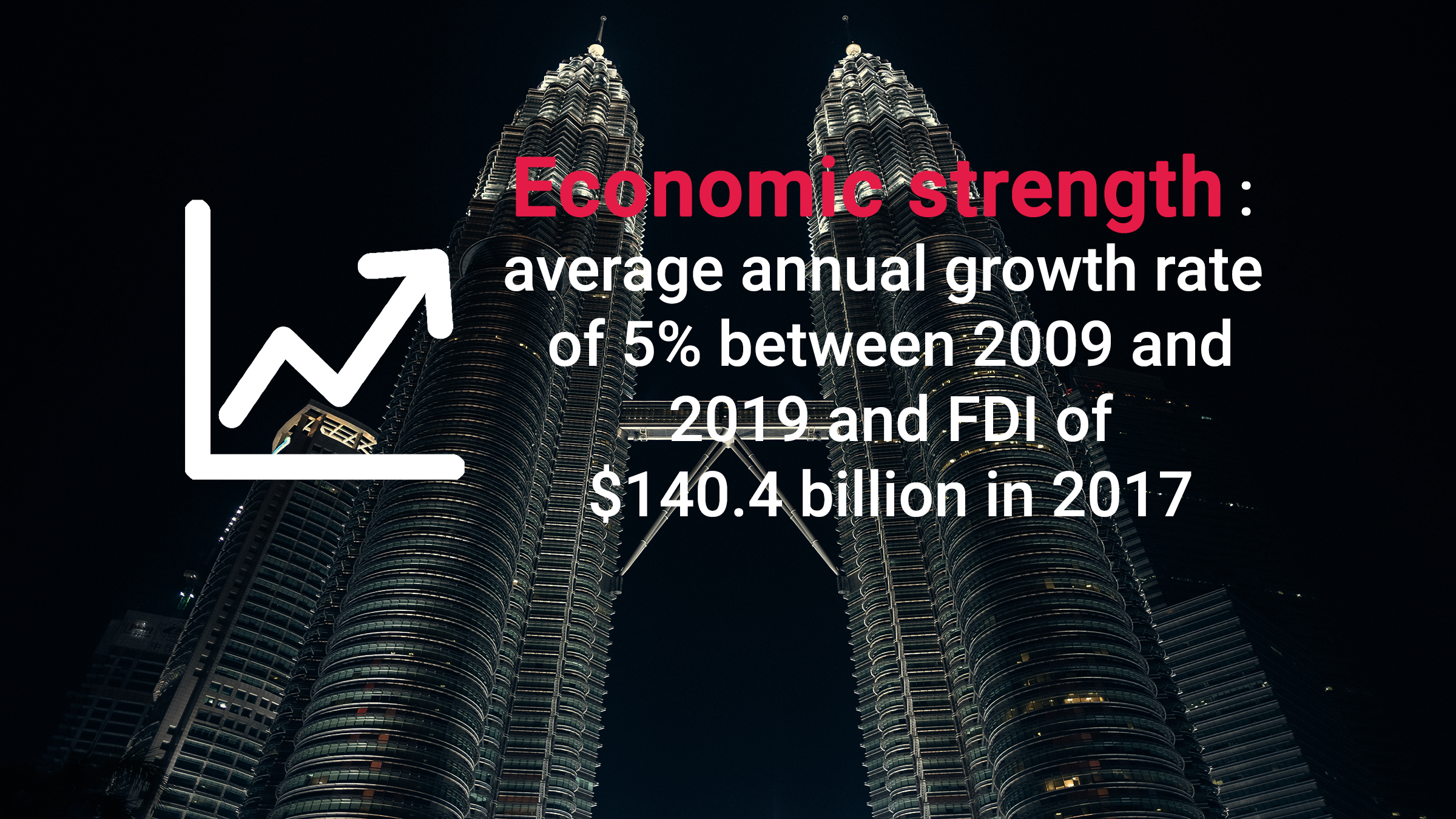Business Opportunities in Malaysia
A Constantly Growing Economy
Global economy situation, estimated GDP, major market potential
Multinational corporations from more than 40 countries have invested in over 5,000 companies in Malaysia's manufacturing and related services sectors, encouraged by the country's pro-business environment.Malaysia today is one of the world's top locations for offshore manufacturing and service-based operations. Many of the existing foreign companies have also continued to show their confidence in the country's potentials as an investment location through their numerous expansions and diversifications over the years, particularly in high-technology projects.
The New Economic Model (NEM) to be achieved through an Economic Transformation Programme (ETP) constitutes a key pillar which will propel Malaysia to being an advanced nation with inclusiveness and sustainability in the line with goals set forth in Vision 2020.
Attractiveness For Investors
Vibrant Business Environment
A market-oriented economy and government policies that provide businesses with the opportunity for growth and profits have made Malaysia a highly competitive manufacturing and export base. Malaysia's rapid move towards the K-economy allows companies to do business in an environment that is geared towards information technology.
Developed Infrastructure
The greatest advantage to manufacturers in Malaysia has been the nation's persistent drive to develop and upgrade its infrastructure. Over the years, these investments have paid off and serious bottlenecks have been avoided. Today, Malaysia can boast of having one of the most well-developed infrastructures among the newly industrialising countries of Asia.
Excellent Educated Workforce
Many of Malaysia's university graduates are trained overseas in fields such as engineering and accountancy, allowing them to adapt easily to an international corporate environment. English is widely used in Malaysia, especially in Business thus facilitating the investors' communication with local personnel and suppliers.
Quality of Life - Cosmopolitan Environment
Malaysia is among the friendliest and most hospitable places in the world to work and live in while Malaysians are warm, friendly people who easily accept foreigners into their circle of friends. In addition, the country's tropical climate with its uniform temperatures allows light, comfortable clothing throughout the year.
One of the country's most distinctive features is its rich diversity of cultures, a heritage derived from its racial mix of some of the world's oldest civilisations - Malay, Chinese and Indian.
High value manufacturing
Medical & Pharmaceutical
In Malaysia, the Medical devices industry spans a wide range of industries from rubber and latex, textiles, plastics, machinery and engineering support and electronics. There are approximately more than 200 medical devices manufacturers, mainly the small and medium entreprises (SMEs) manufacturing medical gloves. However, the industry also includes higher value-added and technologically advanced products such as cardiac pacemakers, stents, orthopaedic implantable devices, electro-medical, therapeutic and monitoring devices.
The Malaysian pharmaceutical industry has been steadily growing over the last decade. They are categorised into 158 (63%) facilities that produce traditional medicine, 83 (33%) facilities that produce pharmaceuticals and 10 (4%) facilities that produce veterinary products.
The market is estimated to be worth around RM1.4 billion with almost all of the world’s international pharmaceutical companies represented in the country in addition to the local ones. Currently, the local industry is capable of producing all different types of pharmaceutical dosage forms, including sterile products, small volume injectables such as ampoules and vials, large volume infusions and dry powder for reconstitution in addition to all standard oral formulations.
The growth of the industry during the last decade could be attributed to strong generic medicine production and the import of other patented drugs to meet local demands. Currently, Malaysian generic manufacturers are capable of producing approximately 30% of medicine to meet domestic demand, while the rest of the 70% of pharmaceuticals have to rely on import from other countries.
Electric & Electronic
Malaysia is a major electronics producer and exporter. The electrical & electronics (E&E) industry is the leading sector in Malaysia's manufacturing sector, contributing significantly to the country's manufacturing output (26.94 percent), exports (48.7 percent) and employment (32.5 percent).
The major export destinations are USA, China, Singapore, Hong Kong and Japan while the major import destinations are Taiwan, USA and South Korea. The E&E industry in Malaysia can be categorised into four sub-sectors namely consumer electronics, electronic components, industrial electronics, and electrical products. An exciting new area in the E&E sector is the use of flexible hybrid electronics (FHE), which underlies several new industrial technologies and wearable electronics. FHE makes it possible to produce lightweight, low cost, flexible, stretchable, and efficient smart products with a variety of applications. These include health-monitoring wearables and rugged sensors.
Malaysia ramping up efforts in developing the ecosystem to cater to the growing needs of the E&E industry in embracing Industry 4.0. These include investments in core focus areas such as FHE materials scale-up, thinned device processing, device/sensor integrated printing and packaging, system design tools, and reliability testing and modelling.
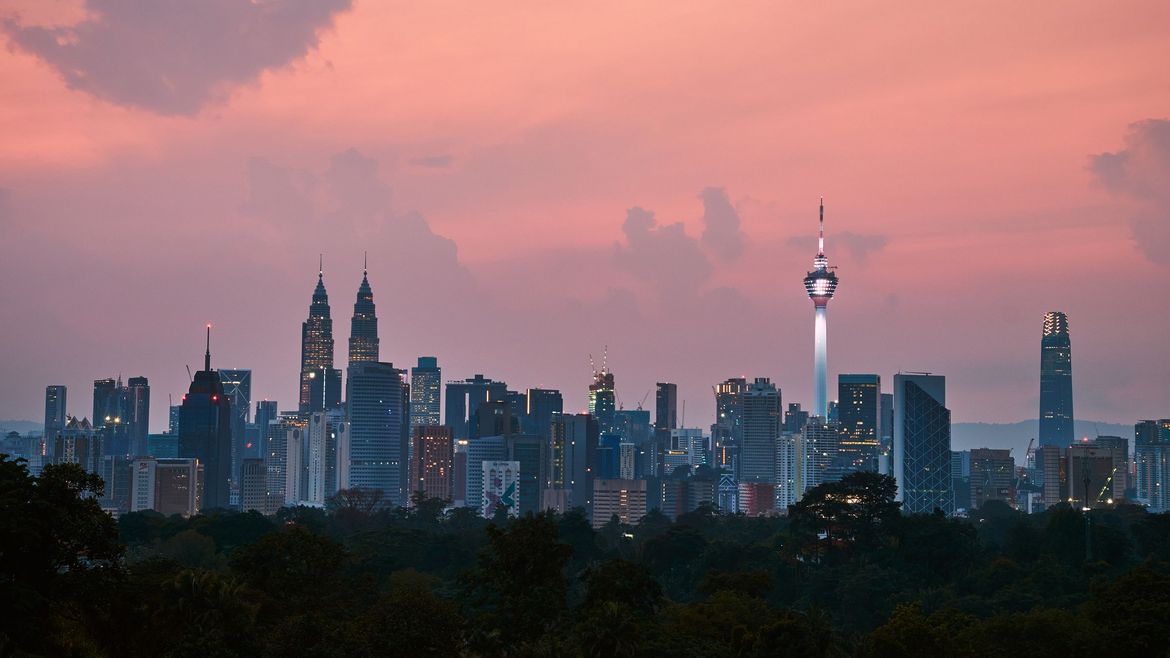
Automotive
The Malaysian automotive industry is an important and strategic part of the manufacturing sector. The overall automotive industry and related sectors employ around 710,000 people and contributes almost RM30 billion to Malaysia’s GDP.
There are 27 manufacturing and assembly plants in Malaysia producing passenger and commercial vehicles, composite body sports cars, as well as motorcycles and scooters. Malaysia also has more than 600 automotive component manufacturers, producing a wide range of components, such as body panels, trim parts, powertrain parts, rubber parts and electrical and electronic parts.
The industry has boosted the development of engineering, auxiliary and supporting industries and contributed to skills development and the upgrading of technological and engineering capabilities. These factors have further enhanced the attractiveness of Malaysia as a base for global automotive manufacturers. Honda, Toyota, Nissan, Mercedes-Benz, BMW, Peugeot are some of the global automotive companies which have set up their operations in Malaysia to take advantage of the buoyant consumer demand.
Aerospace
Malaysia’s aerospace industry is one of the rapidly growing industries in the country, energised by the implementation of the National Aerospace Industry Blueprint 2030. With over 230 companies involved in the maintenance, repair and overhaul (MRO), aero-manufacturing, education and training, systems integration, as well as engineering and design activities, the industry is growing at an average of 5% for the past ten years.
Some major foreign aerospace companies which have established themselves as part of the global supply chain include Airbus Group Malaysia, Spirit Aerosystems Malaysia, GE Engine Services Malaysia, Safran Landing Gear, Honeywell Aerospace Avionics Malaysia, RUAG Aviation Malaysia, Celestica Malaysia, Singapore Aerospace Manufacturing, Agusta Westland Malaysia, Hamilton Sundstrand Customer Support Centre, SR Technics Malaysia.
The aerospace industry in Malaysia can be classified into four sub-sectors namely, MRO, Aero-Manufacturing, Systems Integration and Engineering & Design. Sub-Sectors Products / Services MRO Aircraft, Ground Systems, Simulators, Ground Set Equipment Aero-Manufacturing Aero Structures, Avionics Equipment, Engines, Airframe Equipment Systems Integration Ground Systems, Simulators, Spacecraft, UAV, Aircraft Avionics, Missiles and Rockets Engineering & Design Detailed Design, Analysis & Certification, Manufacturing Design & In-Service, Concept.
Chemical & Chemical related business
Malaysia’s diverse chemical industry includes one of the largest oleochemical sectors in in the world, accounting for 20% of global capacity, and a petrochemical industry that is world-renowned and an integral part of the wider chemicals industry providing a steady supply of feedstock material to the sector. Until now, the three world-scale petrochemical zones in Malaysia which are located in Gebeng, Kertih and Pasir Gudang, and have been the country’s petrochemical manufacturing hubs. However, the refinery and petrochemical integrated development (RAPID) project in Pengerang is poised to change the face of Malaysia’s and South East Asia’s chemical industry.
There is no doubt about the staying power of the Malaysian chemical industry and, with the RAPID project, the country is showing its continued commitment to the industry and to attracting foreign investors. In the past, the Malaysia’s unique characteristics were driving growth in the sector, but with growing competition in the region, innovation will be pivotal if the industry is reaching its targeted growth levels and for Malaysia’s transformation to high-income developed country.
The major chemicals and chemical products produced by Malaysia Chemical Industry are, Oleo Chemicals, Petrochemicals, Industrial Gases, Agricultural Chemicals and Fertilizers, Inorganic Chemicals, Soaps and Detergents, Cosmetics & Paints.
